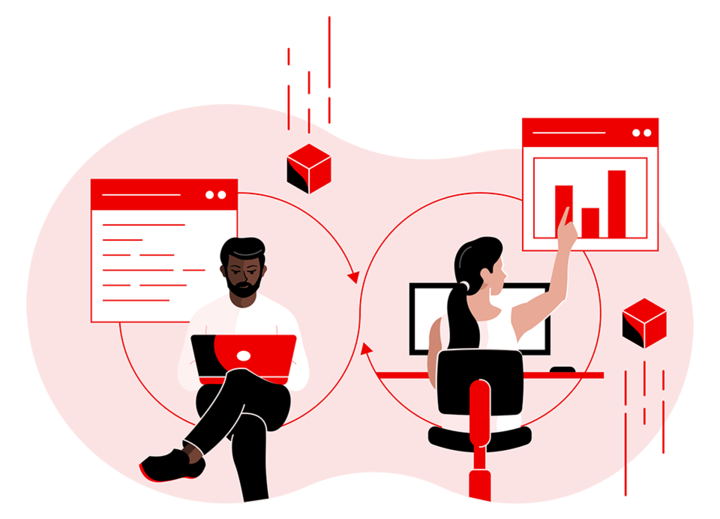Editor’s note: In this ongoing series for IT job hunters, we'll explore in-demand roles, necessary skills, and how to stand out in an interview. Here, Pete Sosnowski, co-founder and VP people at Zety, shares insights on getting a DevOps role.
DevOps engineer salary range:
$64,000 - $136,000 per year. Source:PayScale.
In a nutshell: What is a DevOps professional
When technology companies are on the rise, DevOps engineers and managers are among the most wanted roles. DevOps is short for development and operations, and this role aims to create synergy between the departments of software development (Dev) and systems management (Ops). DevOps promotes smooth communication between technical teams in the company that are responsible for creating the product and delivering it to the client.
[ See also: DevOps engineers: Common misconceptions about the role ]
What skills are needed?
Soft skills: DevOps professionals need curiosity, openness, and willingness to learn. In DevOps jobs, it is important to know how to validate and potentially implement new technologies. DevOps should keep up with trends and best market solutions and have a desire to keep improving and developing implemented systems.
Because DevOps professionals work closely with development and data science teams on ongoing projects and deployments, they also need great communication skills to succeed in their role. Finally, they'll need analytical thinking skills in order to investigate and triage ongoing issues.
Tech skills: DevOps professionals require the ability to administer, monitor, and maintain global server infrastructure. They must have knowledge of Linux Debian, Ansible, HAProxy, Varnish, Nginx, PHP-FPM, Node.js, Redis, MySQL scaling, monitoring and debugging skills.
They also should be abie to design and build scalable, highly available, and redundant infrastructure for company products.
[ What else are recruiters looking for in DevOps candidates? DevOps hiring and training: 16 top-rated skills ]
How to stand out in an interview
Show that you can get a job done. Instead of just presenting what skills you possess, talk about your last job and achievements. For instance: "I led an Agile team of five developers and two Sysadmins to continuous deployment of SaaS real estate solution with 1 million+ users." Or "I maintained a network of 30+ Unix servers with 99.9 percent up-time."
Achievements and real-life examples are what recruiters want to see. Some companies, apart from asking you questions, will also perform technical screenings. You may be asked to take an online test similar to those from Devskiller.
Bonus: Sample interview questions
Question: What tools do you know to support DevOps?
Answer: Be prepared to describe each of these briefly: Linux, Bash, Python, Ansible.
Question: What is Continuous Integration?
Answer: It is the philosophy of introducing changes to the application code – the development team introduces a number of small changes in the code, which are then periodically checked in the code version repository. Because most modern applications require code creation using various platforms and tools, the team of programmers will, therefore, require mechanisms for "connecting," thus checking the correctness of code changes introduced by individuals.
Question: What does Continuous Delivery mean?
Answer: Continuous delivery begins where continuous integration ends. The CD automates the process of application implementation and introduced changes in the code to the prepared server infrastructure.
[ Read also: IT careers: How to job hunt during a pandemic. ]






